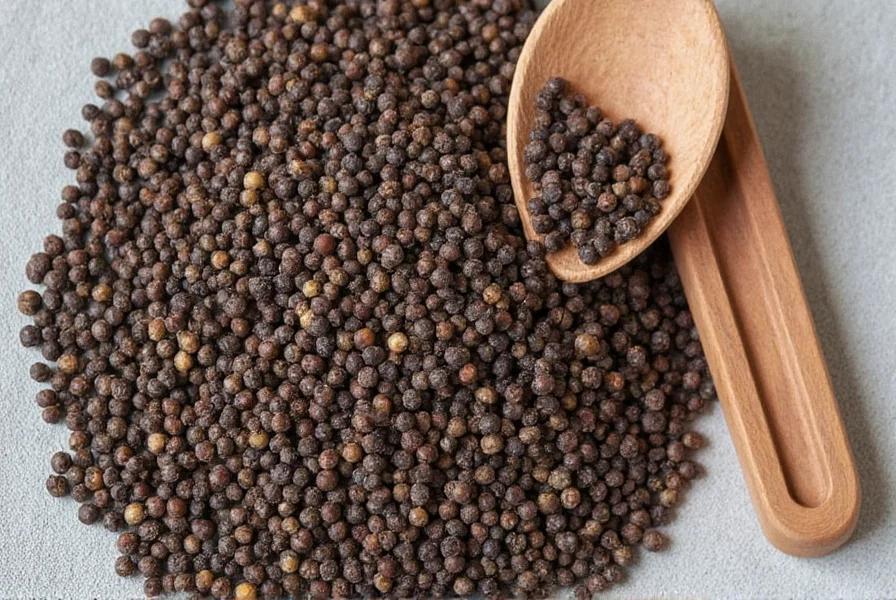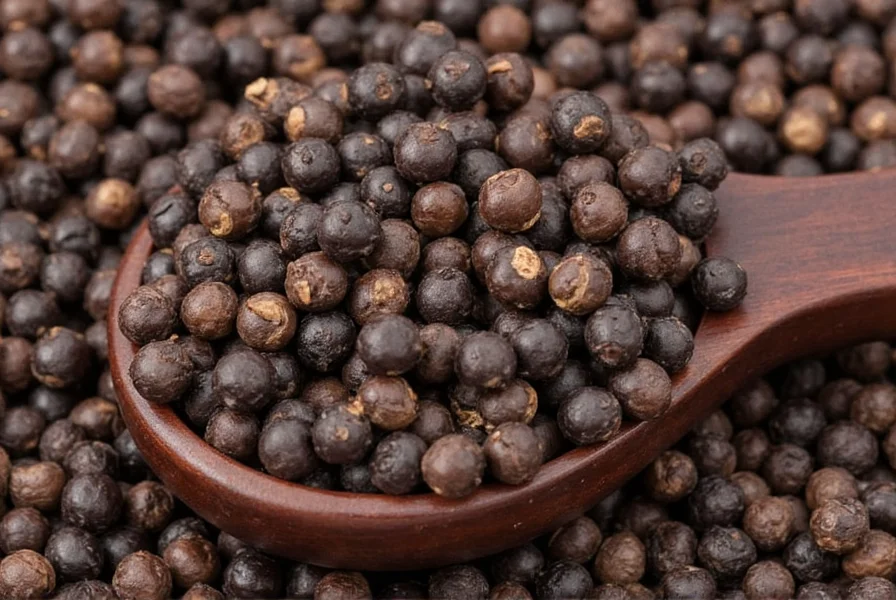Introduction: Why Black Pepper Corns Rule the Spice Rack
If spices had a royalty system, black pepper corns would definitely be crowned king. This humble little peppercorn has been spicing up meals for thousands of years — from ancient Indian kitchens to modern fine dining restaurants across the globe.
In this article, we'll explore everything there is to know about black pepper corns — how they're made, why they taste so good, how to use them like a chef, and how to buy the best ones out there. Whether you're a spice connoisseur or just getting started, you're in for a flavorful ride!
What Are Black Pepper Corns?
Let's start with the basics. Black pepper corns aren't technically peppers at all — they're the dried berries of the Piper nigrum plant, native to South India but now grown around the world.
The process goes like this:
- The unripe green berries are harvested
- They're briefly boiled to clean them and prepare them for drying
- Then, they're sun-dried until they shrivel into the wrinkled black peppercorns we all know and love
Other colors of pepper (like white, green, and pink) come from different processing methods, but black pepper is the most robust and aromatic of the bunch.
Flavor Profile & Aroma Breakdown
So what makes black pepper so special when it comes to flavor? Let's break it down:
| Flavor Note | Description |
|---|---|
| Pungent Heat | Come from piperine, not capsaicin — less fiery than chili, but more complex |
| Earthy Base | Makes it pair well with meats, soups, and root vegetables |
| Woody Undertones | Adds depth to sauces and marinades |
| Subtle Citrus Kick | Complements lighter dishes and seafood beautifully |
This combination makes black pepper one of the most versatile spices in any kitchen. It doesn't overpower — it enhances.
How to Use Black Pepper Corns Like a Pro
One of the biggest mistakes people make is using pre-ground pepper. Here's how to do it right:
- Use Whole Corns: Buy whole black pepper corns for maximum freshness and flavor.
- Grind as Needed: Invest in a quality peppermill — it makes a world of difference.
- Toast First (Optional): Lightly toast peppercorns in a dry pan to bring out deeper flavors before grinding.
- Add Late in Cooking: Unlike many spices, black pepper loses its potency if added too early in cooking. Wait until near the end for bold flavor.
5 Genius Ways to Upgrade Your Dishes with Black Pepper
Here are five clever ways to use black pepper beyond the dinner table:
- Crust for Meats: Crushed black pepper adds a bold crust to steaks and chops.
- Enhance Chocolate: Yes! A dash of freshly ground black pepper can deepen dark chocolate desserts.
- Kickstart Coffee: Some baristas swear by a pinch of pepper in coffee to add warmth and complexity.
- Spice Up Smoothies: Believe it or not, adding a bit to smoothies can boost metabolism and aid digestion.
- Marinade Magic: Mix crushed pepper with oil and herbs for an unforgettable marinade.
Buying Guide: Choosing the Best Black Pepper Corns
Not all black pepper corns are created equal. Here's how to choose the best ones:
1. Look for Whole, Intact Corns
Freshness matters. Make sure the peppercorns are plump, firm, and dark — not dusty or cracked.
2. Check the Origin
Some top regions for high-quality black pepper include:
- India (Malabar): Rich, earthy, and balanced — the classic choice.
- Madagascar: Known for citrusy notes and floral hints.
- Brazil: Milder, often used in commercial blends.
- Vietnam: Strong and slightly bitter — great for hearty dishes.
3. Opt for Organic When Possible
Avoid pesticides and preservatives by choosing organic-certified brands.
4. Read Labels Carefully
Check for additives or fillers, especially in pre-ground pepper.
Top Brands Comparison
| Brand | Origin | Flavor Notes | Best For | Price Range |
|---|---|---|---|---|
| Spice Islands | India | Rich, earthy, medium heat | Everyday cooking | $$ |
| Penzey's | Global | Bold, spicy, slightly woody | Cooking & grilling | $$$ |
| Simply Organic | India | Smooth, balanced, mild citrus kick | Sensitive palates | $$ |
| Dean & DeLuca | Madagascar | Complex, bright, slightly fruity | Finishing touch | $$$$ |

How to Store Black Pepper Corns for Maximum Freshness
Once you've found a great source, here's how to keep your black pepper corns tasting fresh:
- Store in a Cool, Dry Place: A pantry or cupboard away from heat and moisture works best.
- Air-Tight Containers: Glass jars with tight lids preserve aroma and flavor longer.
- Keep Away from Sunlight: UV rays degrade spices over time.
- Whole vs. Ground: Whole corns last years; ground pepper should be used within 6 months.
Common Mistakes When Using Black Pepper (And How to Avoid Them)
Even seasoned cooks make these blunders. Here's how to avoid them:
- Using Old or Stale Pepper: If your pepper doesn't smell strong, it's probably lost its punch.
- Overgrinding: Too much pepper can overwhelm a dish. Start small and taste as you go.
- Adding Too Early: Add pepper near the end of cooking to preserve flavor and aroma.
- Storing in Clear Containers: Transparent containers expose spices to light, degrading flavor.
- Ignoring Quality: Cheap pepper lacks depth and vibrancy. It's worth investing in good stuff.

Frequently Asked Questions About Black Pepper Corns
What's the difference between black pepper corns and regular pepper?
Black pepper corns are the whole, unprocessed berries of the Piper nigrum plant. What most people call "regular pepper" is usually pre-ground black pepper. Whole corns retain their flavor and aroma much longer than pre-ground pepper, which quickly loses potency once ground.
Why is freshly ground pepper better than pre-ground?
Freshly ground pepper has significantly more flavor and aroma because the essential oils and piperine (the compound responsible for pepper's heat) begin to evaporate immediately after grinding. Pre-ground pepper loses up to 90% of its volatile compounds within an hour of grinding, which is why it often tastes flat compared to freshly ground.
How long do black pepper corns last?
Properly stored whole black pepper corns can maintain their quality for 3-4 years. They'll gradually lose potency over time but won't spoil. In contrast, pre-ground black pepper starts losing flavor within months and should be replaced every 6 months for optimal taste.
What's the difference between black, white, and green pepper?
All come from the same Piper nigrum plant but are processed differently: Black pepper is made from unripe berries that are cooked and sun-dried. White pepper comes from ripe berries with the outer layer removed, resulting in milder flavor. Green pepper is made from unripe berries preserved through freeze-drying or brining, offering a fresher, grassier taste. Each has distinct culinary applications.
Why does my pepper sometimes taste musty or bland?
This usually happens for three reasons: 1) Your pepper is old and has lost its volatile compounds 2) It was stored improperly (exposed to light, heat, or moisture) 3) You're using low-quality, pre-ground pepper. Always check the harvest date, store in airtight containers away from light, and grind whole corns just before use for optimal flavor.
What dishes work best with black pepper?
Black pepper enhances virtually any savory dish! It's essential for meats (especially steaks), eggs, roasted vegetables, soups, and sauces. Surprisingly, it also complements sweet dishes - try a pinch in chocolate desserts, fruit salads, or even coffee. Its complex flavor profile (earthy, woody, with citrus notes) makes it incredibly versatile across cuisines.
Is there a substitute for black pepper corns?
While nothing replicates black pepper's exact flavor, alternatives include: White pepper (milder, good for light-colored dishes), Tellicherry pepper (a premium black pepper variety), Szechuan pepper (different heat profile but complex), or a mix of cumin and coriander for earthiness. However, for most culinary applications, nothing compares to fresh black pepper corns.
Final Thoughts: Embrace the Power of Peppercorns
Black pepper corns are far more than just a seasoning — they're a culinary workhorse and a flavor enhancer all wrapped in one tiny, wrinkled package.
By choosing quality corns, storing them properly, and using them strategically, you'll elevate every meal you cook. So next time you reach for that shaker, remember: you're holding the king of spices in your hand. Treat it with respect, and it'll reward you with flavor forever.










 浙公网安备
33010002000092号
浙公网安备
33010002000092号 浙B2-20120091-4
浙B2-20120091-4